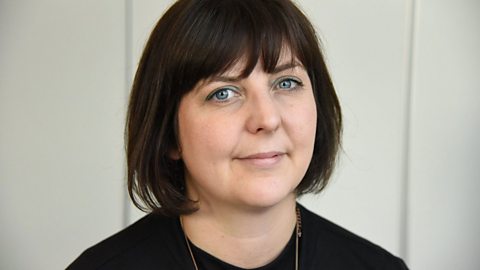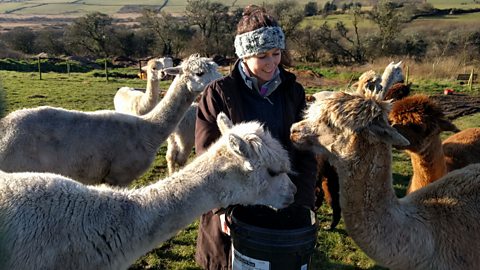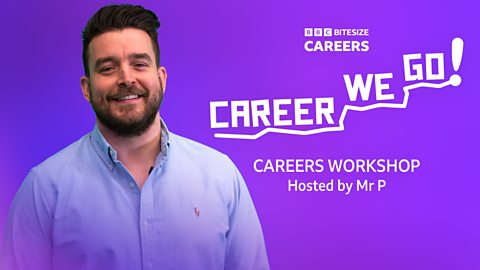If you are a school leaver or new graduate it can sometimes feel as if Covid–19 has made a mess of all of your future career plans, but have you ever thought about a portfolio career? We've brought in a few experts to explain just what a portfolio career is and how one may benefit you in a post–lockdown world.
Emma: A portfolio career is when you have multiple jobs at the same time, through part time, freelance or contract work.
Helen: And the advantage of doing some different jobs at the same time are that you might be able to develop your strengths in different contexts. So if I think one of the things that I want to become really good at in my career is creativity, the fact that I might be able to do that on my little side project start up as well as in my day job means that I'll be working with different people in different contexts and that helps my strengths to get stronger, which is exactly what we want to do.
Emma: In a post-Corona world, having a portfolio career will help us to be more resilient, because you have multiple sources of income, rather than focusing on one in particular, and that means if there's changes to one industry that you're working in, that's OK because you have several other jobs and several other opportunities lined up in another one.
Helen: It also helps you to build relationships with different people and relationships are so important for your career when a lot of things are changing, the relationships are one of the things that you can take with you through all of that change.
Emma: So when I spent my year trying twenty-five different jobs, I tried a really, really diverse range of things, everything from archaeology, to being an explorer, to working in journalism, to being an interior designer and even an alpaca farmer, and the way that they approach this was to turn it on its head a little bit. So instead of thinking, I want to be X and to be that particular job I need to be the sorts of things, I did it the other way round. I looked at who I was as an individual and that meant thinking about all of my traditional skills that you might associate with jobs, but also taking into account things like working environment and what motivated me, what made me want to get up in the morning and go to work and once they figured out all of those things I then applied that to see which jobs would fit to who I am as a person.
Helen: So my recommendation is just to take a step back and think about your skills today, think about those technical skills that might be quite job-specific and think about those transferable skills that could go with you wherever you go. You don't have to have an even list, but it's worthwhile thinking for your career where are you spending quite a lot of time now, and where might you have some gaps and just know that those transferable skills are likely to help you to open up more possibilities for the directions that your career could go in in the future.
Emma: So whilst I did twenty-five different jobs, I realise that is a little bit radical, but what my advice to you would be is to do three or even four over several years during your school holidays, take advantage of the time that you have just so that you have the opportunity to compare different careers to one another. Don't just jump into the first one that you try.
What does the future of work look like?

It’s hard to know exactly what the future holds, and we know that it may be really difficult for you to get a job right now. We haven't got a crystal ball, but some experts are predicting that we may need to look at our careers differently in the future, including CEO of Youth Employment UK, Laura–Jane Rawlings.
Laura-Jane says that Coronavirus has had impacts on some of those sectors that young people most often start their careers in, such as retail, hospitality, leisure and tourism. "So young people have got to become more aware of themselves, the world of work around them, and the opportunities there are and be really prepared to capitalise on those opportunities."
But what does this mean if you have been studying for the past few years to work in an industry that now may no longer be recruiting as widely? Have you ever stopped to think that your skillset could actually be transferable and fit across many industries?
One thing that you could consider is a portfolio career, which Laura–Jane says can be really rewarding, allowing you to broaden your knowledge of all the incredible careers that are available to you by using your skills across many industries or job roles.


Resilience is key
Whilst I did twenty five different jobs… my advice to you would be to do three or even four over several years… don't just jump into the first one that you try. – Emma Rosen.

Emma Rosen is a big advocate of portfolio careers. All of Emma's studies were focused on a career in the Civil Service, but, when she hit 24, she decided it wasn't the right job for her at that stage of her life. Emma spent the next year working in twenty–five different jobs to see which she liked best, including time as an alpaca farmer and an archaeologist. Emma now works as a public speaker, giving advice on careers education and change.
Reflecting on her challenge Emma says, “So whilst I did twenty five different jobs… my advice to you would be to do three or even four over several years… don't just jump into the first one that you try."
Whilst Emma's approach to finding a career that suited her was pretty radical, it is actually just a very extreme version of a portfolio career, "A portfolio career is when you have multiple careers at the same time through part time, contract or freelance work. This means that instead of specialising in one industry, you specialise in a skillset and you apply that laterally across multiple industries."
So why might a portfolio career be perfect for the new-normal way of working? "In a post–Corona world, having a portfolio career will help us be more resilient because you have multiple sources of income rather than focusing on one in particular, which means if there are changes in one industry you are working in, that's okay, because you have several other jobs or opportunities lined up in another one." There are also lifestyle benefits to working in a portfolio career, "You sometimes get to do a more traditional job, but also use your more creative side of your brain alongside it, for example, I mentor somebody who is a doctor four days a week, but on Friday they work as a jewellery designer and sell their jewellery online."


 Image source, Jonathan Cole Photography
Image source, Jonathan Cole PhotographyCareers can be squiggly!
Author Helen Tupper is co–founder of the career development company 'Amazing If', she's co-written a book all about what she calls a 'squiggly career', basically a career that doesn't follow a traditional path.
Helen says, “There are lots of different ways you can develop and apply transferable skills to open up your career opportunities." So maybe you love writing a blog, or maybe you create videos and content for your social pages, "that could be something you could take forward in your career, maybe in the media or marketing – so those side projects and hobbies could help you develop those transferable skills for employment."
But transferable skills don't just have to be taken from your hobbies, "Maybe you work in the hospitality sector, and one of the things you are really good at is customer service, that could transfer really well into retail, or maybe you work in technology and you have an amazing attention to detail, those are the sorts of skills that are hugely valuable in finance… that might be a pivot or a possibility that you could consider for the future, where you could take that transferable skill with you into that opportunity."
 Image source, Jonathan Cole Photography
Image source, Jonathan Cole Photography

Living the future... now
19–year–old Ciara and 24–year–old Josh, are two young people who are currently on the road to developing portfolio careers. After studying A–Levels in History, Politics and English Language & Literature, Ciara very much had ambitions of working in law, but after taking a step back and doing a skills audit on herself she instead decided to pursue a career as an engineer. Ciara is now about to start an engineering apprenticeship, "I was so lucky I studied English, it's such a versatile subject – I thought if you can write really good reports, they could be used in technical forms… So I started doing some research and I applied for engineering apprenticeships." Whilst waiting to hear back from her application, Ciara had been spending time doing some engineering projects around the house with her Dad, "They wanted to see whether I had an aptitude for engineering, and when I told them about what I'd been doing with my Dad, they said 'Okay, we can see you have the mind for it and we can teach you the rest over the next few years.' The rest is history!"
Even if Ciara doesn't end up becoming an engineer in the long term, she says that the problem solving skills she has developed could help her go into many other STEM (Science, Technology, Engineering and Mathematics) industries, "but I do like the versatility of engineering, because it's one of those fields where you've got people sat in offices designing things, you've got people who are out there fixing things, people proposing new buildings, people giving speeches to MP's and councillors, or you could be heading up a team and reading reports on your team's work. You can really use everything you've learned in your life in this field, and that's what I like about it."
Josh, who studied Geography at university but now works as a policy and research apprentice at Youth Employment UK, said, ‘I must admit that the biggest reward for me in this role, and it's one I wasn't expecting, is working with young people and the chance to work with people from all different backgrounds… That's a side of the job that I've absolutely loved."
On his future career prospects, Josh says "I'm really enjoying my current role, but I wouldn't like to pinpoint exactly what I want to be doing for the rest of my life. I don't know if there is an ideal career that I want to do, you can learn skills from different sectors, different roles, different types of jobs and bring them all together. I think looking for a certain career, sector or job type is definitely narrowing your chances of being happiest in work."


Five top tips for acing online interviews
Advice for smashing virtual interviews and insight from a successful interviewee.

Ten things you need to know when building your ‘jigsaw’ career
Find out what you need to know to build your dream career.

Figure out your dream job with Mr P. video
Watch the interactive workshop, hosted by Mr P.
